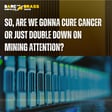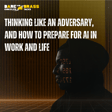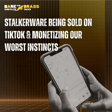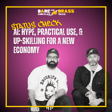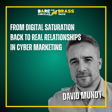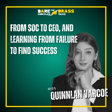
Burnout Lessons for Executive Leaders in Tech & Cyber
This conversation hits different. Mohammed "Moh" Waqas, CTO Healthcare at Armis, joined us to talk about burnout, mental health, and the hidden costs of our "always-on" cybersecurity culture.
George K and George A talk to Mohammad about:
- Why perfectionism in cyber is literally making us sick
- How epilepsy taught Moh to recognize burnout triggers before they hit
- The real cost of saying "yes" to every sales deadline
- Why your team needs mandatory disconnect time (and how to make it happen)
- Leading with radical transparency during layoffs and industry chaos
This isn't just feel-good advice – it's business-critical. Burned out teams cost more, perform worse, and leave faster.
Drop a comment: What's your biggest burnout trigger in cyber? Let's normalize this conversation.
---------------
🏳️🌈 Pride Month is just around the corner! We're once again running our t-shirt campaign to raise money for scholarships for LGBTQ+ students in cybersecurity programs.
In the month of June, all profits from any Pride gear purchased from the BKBT Swag Store will be donated.
Set your reminders for June, and check out the collection: https://bkbtpodcast.shop/
